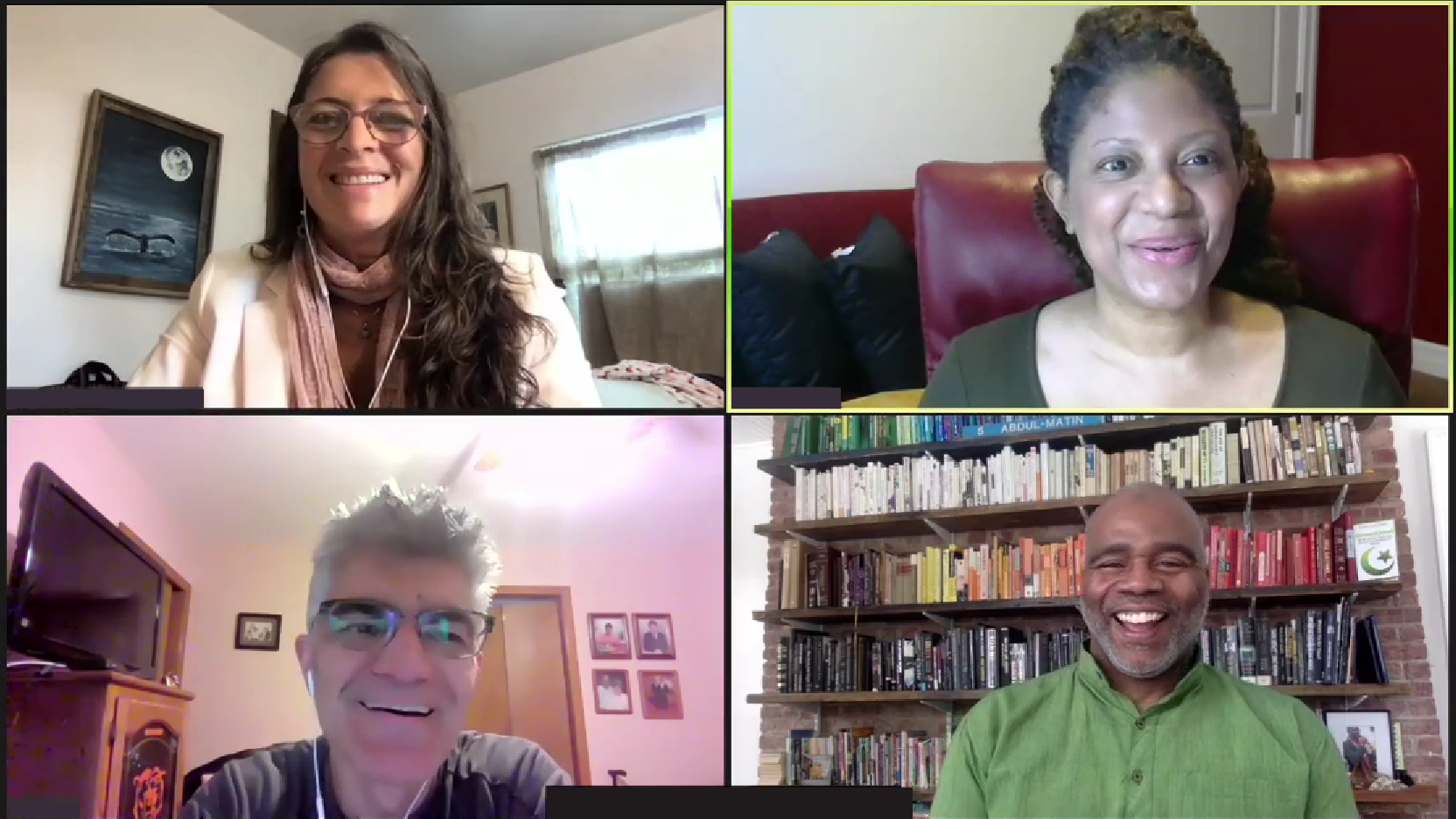Many issues facing the world today are interdisciplinary, but none embody this more than environmental justice. Environmental justice argues that all people and communities have the right to equal environmental protection under the law, and the right to live, work, and play in communities that are safe, healthy and free of life-threatening conditions. It not only combines interdisciplinary scientific studies, such as environmental science, biology, geology, sociology, and health; but it can also bring together people from different socioeconomic backgrounds, nationalities, religious communities, and races. “We need to transcend our silos and boundaries and to work together,” said Dr. Ingrid Waldron, a sociologist and Associate Professor in the Faculty of Health at Dalhousie University.
Waldron joined two other speakers on January 11, 2021, for a virtual discussion titled “Pursuing Environmental Justice Through Science and Religion.” The session was organized by the American Association for the Advancement of Science (AAAS) Dialogue on Science, Ethics, and Religion (DoSER) program as part of the 2021 AAAS Annual Meeting. It was born out of the recognition that the impacts of environmental degradation disproportionately affect people of color and other marginalized communities. For years, scientists, civic representatives, grassroots organizers, religious leaders, and local community members have been working together to improve living conditions in affected neighborhoods and assist in environmental justice efforts. Waldron was joined by Rev. Dr. Neddy Astudillo, an eco-theologian, Presbyterian pastor, and GreenFaith’s Latinx and Latin America Organizing and Training Coordinator, and Mr. Ibrahim Abdul-Matin, an environmental policy consultant and the author of Green Deen: What Islam Teaches About Protecting the Planet. Dr. Rajul Pandya, Director of the Thriving Earth Exchange program at the American Geophysical Union, moderated the discussion.

Neddy Astudillo, Ingrid Waldron, Rajul Pandya, and Ibrahim Abdul-Matin speak at the AAAS 2021 Annual Meeting. Image by Katy Hinman | AAAS DoSER
Like many sociologists, Waldron never thought that she would focus on environmental justice in her work. But when an environmental activist approached her in 2012 about a project fighting environmental racism in Nova Scotia, Canada, she realized that she could bring something to the project that others – even trained environmental scientists – could not. “This project concerns Indigenous and Black communities – the communities I work with. It’s essentially a health issue, and I am a health researcher. And as a sociologist, I can bring something special to this in terms of analysis on race, gender, rural living, social class, colonialism, etc.”
Besides working with scientists from various fields, she also uses a community-based engagement approach to work closely with local residents. Before Waldron even begins a project, she includes community leaders on her advisory board to help develop methodologies, ask questions, and decide how the knowledge will be shared post-project. She explained, “as scientists, we focus on a Western, Euro-centric way of knowing. Engaging with the community teaches us there are other ways of knowing that need to be part of the research.”
Astudillo concurred with an example from her work on the Interfaith Rainforest Initiative in Colombia. This initiative provided a platform for Christian, Muslim, Jewish, Buddhist, Hindu, and Taoist religious leaders to work with Indigenous peoples, governments, civil society organizations, and businesses on actions that protect rainforests. During the project, “many religious leaders recognized for the first time that Indigenous communities are the first and best protectors of rain forests. The fact that rain forests still remain is because of the stewardship of Indigenous communities.”
Furthermore, when locals are engaged in environmental justice efforts, they are more likely to succeed. One of Abdul-Matin’s most memorable projects is his ongoing work with the Bronx River Alliance. He and other scientists go into neighborhoods that have been polluted for decades and teach the residents how to properly test their water and collect samples. “We have more samples than ever before, we have more people of all stages in life involved in water quality testing, we have more information about the water quality than ever before,” Abdul-Matin said. “And there’s a correlation between that and the fact that the water quality is cleaner than it’s ever been.”




